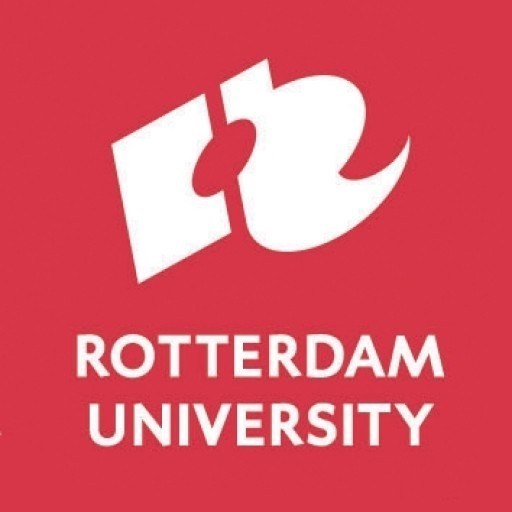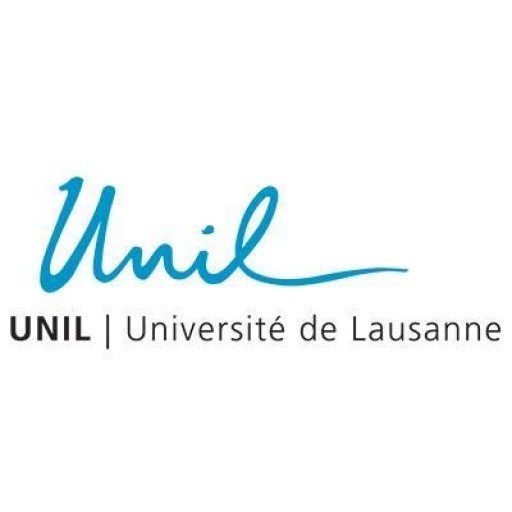Photos of university / #imperialcollege
The MSc in Ecology, Evolution and Conservation offered by Imperial College London provides an in-depth exploration of the fundamental principles governing the diversity of life on Earth and the processes that have shaped its evolution over millions of years. This interdisciplinary programme integrates concepts from biology, ecology, genetics, evolutionary biology, and conservation science to equip students with a comprehensive understanding of how ecosystems function, how species adapt and evolve, and how human activities impact biodiversity worldwide. Throughout the course, students will engage with cutting-edge research and practical case studies, gaining valuable insights into pressing environmental challenges such as habitat loss, climate change, invasive species, and species extinction. The programme emphasizes both theoretical knowledge and applied skills, including data analysis, field methods, and ecological modelling, preparing graduates for careers in research, conservation management, environmental consultancy, and policy-making. Students benefit from Imperial College’s world-class research facilities and close collaboration with leading experts in the field. The programme also offers opportunities for field-based learning, internships, and engagement with conservation initiatives, fostering a practical understanding of real-world environmental issues. Graduates of this programme are well-positioned to contribute to efforts to preserve biodiversity, develop sustainable practices, and inform environmental policy at local, national, and global levels. Whether students aspire to pursue PhDs, work in conservation organizations, or influence environmental policy, the MSc in Ecology, Evolution and Conservation at Imperial College London provides a rigorous and inspiring education that prepares them to make a meaningful impact on global biodiversity conservation.
The course comprises a series of week-long compulsory modules covering the fundamental concepts and applications of ecology, evolution and conservation:
- Introduction to ecology, evolution and conservation, including hands-on involvement in a series of research case-studies
- Conservation and management, including visits and discussion workshops on case studies of conservation in action with professionals from conservation bodies
- Evolutionary analysis, covering state-of-the-art approaches to solving evolutionary problems
- Ecology and ecosystems, applying ecological principles and methods covered in earlier elements to complex systems and real ecosystems
- Statistical computing, focusing on analytical skills essential for a career in modern whole-organism biology
You also undertake a 20-week research project.
Year One: All modules are compulsory Term one: All students attend induction days, followed by five one-week modules on core topics in Ecology and Evolution: Plant Community Ecology, Population Dynamics and Modelling, and Global Change Biology I, II and III. The rest of the first term includes three weeks from the Evolutionary Analysis modules (Practical Molecular Ecology, Phylogenetics and Microevolution and Micropaleontology) and two weeks from the Conservation and Management modules (Conservation and Sustainable Use and Demography & Management). Seven afternoons during the term are devoted to a habitat management exercise using the habitats at Silwood Park. Projects suggested by College staff or solicited from external Research Institutes and Companies are advertised to students in the MSc project book. Students are also encouraged to approach staff with their own ideas and are advised to start discussing possible research projects with appropriate academic staff as soon as possible. Term Two: The term begins with an computer-based essay exam examining the first 9 weeks of term 1. The Evolutionary Analysis block then continues with Speciation and the Evolution of Biodiversity and Genomes, Selfish Elements & Conflict. A week is then dedicated to launching individual miniprojects, with group discussions to evaluate ideas and research seminars on a range of topics. The next three weeks comprise Statistical Computing course parallel with other Masters courses at Silwood Park. The taught course concludes with two modules on Ecology & Ecosystems: Forest Ecology and Microbial Ecology. The final week is devoted to completion of mini-projects and groupbased feedback on statistical analyses. Other activities in term two include a workshop on Environmental Impact Assessment and conservation workshops with external visitors. Projects are chosen by the end of Term at the latest and background reading begins. There is a two week reading period at the end of term, followed by two computer-based written exams: one 2-hour exam on data interpretation and one 3-hour exam examining the taught material from the last week of term 1 and from term 2. Term Three: Projects start at the beginning of Term 3, following background reading over the vacation. The projects are conducted at Imperial College or, in part or in whole, at external research institutions or agencies in the UK or overseas. Where the projects are external, a member of Imperial College academic staff is assigned to advise and to monitor student progress. Project assessment is based on a written dissertation in the form of a scientific paper and a viva with two members of the department. All students also have a viva on their project and other aspects of the course with the External Examiner, prior to the MSc Examination Board meeting in late September. The course contributes 90 ECTS; 45 for the taught course (assessed by coursework and examinations) and 45 for the research project (assessed by the dissertation).
Each MSc student completes a 22 week research project drawn broadly from ecology, evolution and conservation. Students choose their projects in discussion with potential supervisors depending on their interests and on which practical skills they wish to learn. Students can be based in a lab or the field at Silwood, in other organisations in the UK, or abroad.
The minimum qualification for admission is normally an Upper Second Class Honours degree in a Science-based subject from an UK academic institution or an equivalent overseas qualification. All UK applicants (and where possible overseas applicants) are invited to Silwood Park for a site tour. Places are offered on the basis of written applications. Where an applicant has a lesser degree qualification but has at least 2 years work experience in a related discipline, a special cases for admission may be submitted to the GSLSM by the Course Director or Postgraduate Tutor.
The Ecology, Evolution and Conservation MSc program at Imperial College London offers a range of financing options to support students throughout their studies. Tuition fees for international students are approximately £35,000 per year, while UK and EU students pay around £14,500 annually. These fees are subject to annual increase and may vary depending on the specific academic year. Students are encouraged to explore a variety of funding sources to assist with their financial commitments. Imperial College London provides scholarships and bursaries specifically for postgraduate students, including those enrolled in environmental and biological sciences. These scholarships can significantly offset tuition fees and sometimes include maintenance stipends. Examples include the Imperial College PhD Scholarships, which, although primarily for doctoral studies, can sometimes apply to master's students through joint funding schemes. Additionally, there are departmental awards and research grants available for students engaging in research projects within Ecology, Evolution, and Conservation. External funding options are also available. The UK government offers loans and grants, such as the Postgraduate Student Loan Scheme, which can cover tuition fees and living costs for eligible students. International students may consider funding from their home country governments, foundations, or environmental organizations that support international students studying environmental sciences in the UK. Students are advised to consult the Imperial College Scholarships webpage and external scholarship databases early to identify suitable financial aid opportunities. Furthermore, part-time work opportunities on or near campus may be available to help supplement income, subject to UK visa regulations for international students. Many students also consider private loans or fundraising campaigns, especially those pursuing research-intensive studies. The college’s financial aid advisors can assist applicants in navigating the various funding avenues, ensuring access to comprehensive support. Overall, while studying Ecology, Evolution and Conservation at Imperial College London involves significant financial investment, numerous scholarships, funding schemes, and external sources can help make the program accessible to a diverse range of students motivated by a passion for environmental sciences.
The MSc in Ecology, Evolution and Conservation at Imperial College London offers a comprehensive and rigorous curriculum designed to prepare students for advanced careers in ecological research, conservation practice, and related fields. This programme combines fundamental theoretical knowledge with practical skills necessary to understand and address complex biological and environmental challenges facing our planet. Throughout the course, students explore various aspects of ecology, including ecosystem dynamics, species interactions, biodiversity, evolutionary processes, and conservation strategies.
Imperial College London is renowned for its interdisciplinary approach, integrating principles from biology, environmental science, and applied technology. The programme emphasizes hands-on learning through laboratory work, field trips, and research projects, enabling students to develop essential data collection, analysis, and reporting skills. Students have opportunities to work on real-world conservation issues, collaborating with academic staff, industry partners, and environmental organizations.
The programme is suitable for students with backgrounds in biological sciences, environmental sciences, or related disciplines who wish to deepen their understanding of ecological and evolutionary processes and their application to conservation. The curriculum is delivered through lectures, seminars, workshops, and independent study, fostering critical thinking and problem-solving abilities. Additionally, students can tailor their learning experience through optional modules in specialized areas such as habitat restoration, invasive species management, and climate change impacts on ecosystems.
Career prospects for graduates of this programme include roles in ecological consultancy, environmental policy, conservation organizations, research institutions, and government agencies. Graduates are equipped to contribute to scientific research, develop conservation strategies, and influence environmental policy decisions. Imperial College's strong global reputation, extensive network of research facilities, and commitment to sustainability ensure that students receive a high-quality education aligned with current industry and research standards.
Furthermore, students benefit from the college’s vibrant academic community and access to cutting-edge resources, including well-equipped laboratories and extensive field stations. The programme also encourages development of transferable skills such as project management, scientific communication, and teamwork, which are highly valued across various sectors.
Overall, the MSc in Ecology, Evolution and Conservation at Imperial College London provides a balanced mix of theoretical knowledge, practical experience, and professional development, preparing graduates for impactful careers in ecology and conservation science worldwide.










